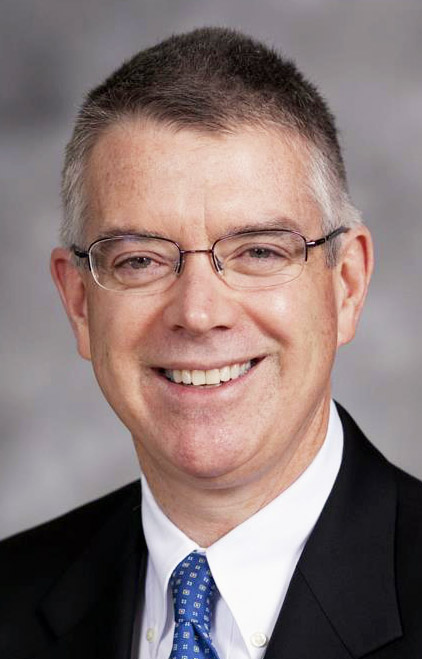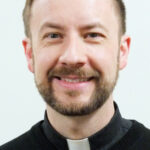By Dr. Tim Millea
Despite the lack of roaring crowds in the stands at the recent Summer Olympics in Tokyo, compelling and inspiring stories about the athletes abounded. One of the most recognized and accomplished was Allyson Felix, an American female sprinter and recent first-time mom.
Felix, 35, became the most decorated American Olympic track and field athlete in history after garnering her 11th medal on the last day of competition. She also announced her decision that Tokyo would be her last Olympics; her first was 17 years ago, at the Athens Games in 2004. Felix’s legacy is a testament to her dedication and drive throughout her long career.

Individuals from all walks of life exemplify similar devotion and commitment to their work. The health care world, for example, has professionals who often care for others during the most difficult times in their lives. These health care professionals pay attention to the dignity of each individual and convey heartfelt compassion for those who suffer and need the help of others. Most who exemplify these gifts humbly do their work without seeking attention. One is a physician who embarked on a remarkable career path shortly after Allyson Felix’s first Olympics. The story of Dr. Tom Catena is one of the most compelling and inspiring stories in 21st century medicine, and is a testament to the power of a Christ-centered life devoted to others.
Catena was raised in upstate New York, in a large Catholic family. After high school, he attended Brown University and graduated with a degree in mechanical engineering. While at Brown, he played nose guard on the football team, earning All-American recognition. He then attended medical school at Duke University on a scholarship from the U.S. Navy. During his fourth year at Duke, he participated in a medical mission in Kenya. That experience was transformational.
His four-year service commitment to the Navy as a flight surgeon ended in 1997. During his family medicine residency in Indiana, he volunteered for medical mission work in Guyana and Honduras. In 1999, as he completed his residency, young Dr. Catena made a momentous decision to practice medicine in a manner that very few choose.
He joined the Catholic Medical Mission Board, and spent the next eight years in rural Kenya. Then, in 2007, he volunteered to establish a hospital in one of the most remote and dangerous locations in Africa: the Nuba Mountains in the barren southern region of Sudan. Under his guidance, Mother of Mercy Hospital was established to serve a population of more than a half-million people in an area the size of Austria. Catena has been their only physician for most of the past 14 years.
He is on call 24/7. He sees as many as 400 patients a day, in the hospital and the clinic. Patients may walk for nearly a week to seek treatment. Catena’s facilities are primitive by our standards, with equipment that is often decades old, and access to electricity and running water is unpredictable. Despite these limitations, Catena performs more than 1,000 operations annually for such things as fracture care, abdominal surgery and injuries sustained in bombing attacks caused by the ongoing civil war in Sudan. He delights in delivering babies, but knows that he may well treat that child in the near future for malnourishment.
His life is busy, but not safe. Bombing attacks by the Sudanese air force led Catena and his colleagues to dig multiple foxholes where patients and staff can seek safety. Nicholas Kristof, a New York Times columnist, describes the Nuba people’s plight as “the worst atrocity you’ve never heard of.” Due to the bombings and the loss of lands, many of the Nuba people have been forced to abandon their ancestral homes and live in mountain caves, without ready food and water.
Over the past few years, the work of Catena and his staff has gained well-deserved attention. In 2016, a documentary film company profiled the work of Mother of Mercy Hospital. The result is the outstanding and highly acclaimed “The Heart of Nuba,” which can be found on most online streaming services.
Why does Catena do this? Why does he plan to continue this dangerous and difficult work? He points to his Catholic faith as the most important factor, and specifically the inspiration of the life of St. Francis of Assisi. A prominent Muslim leader in the Nuba Mountains describes Catena in this way: “He’s Jesus Christ. He heals the sick, helps the lame walk, and makes the blind see.”
Catena’s explanation of his commitment to his work is clear and profound. “My decision to stay here was a simple one. As the only doctor at the only hospital in the Nuba Mountains, I could not leave in good conscience. Also, as a lay missionary, I felt it was very important to show the presence of the Church in this time of need — that the Church does not abandon her people when a crisis arises.”
Allyson Felix has inspired many with her accomplishments and her personal story. People feel better about the world because of her. Dr. Tom Catena, humble and hidden, does more than make people feel better about the world. Through the grace and will of God, he and others like him make people’s lives better, physically and spiritually.
(Dr. Tim Millea is president of the St. Thomas Aquinas Medical Guild and a member of St. Paul the Apostle Parish in Davenport.)











